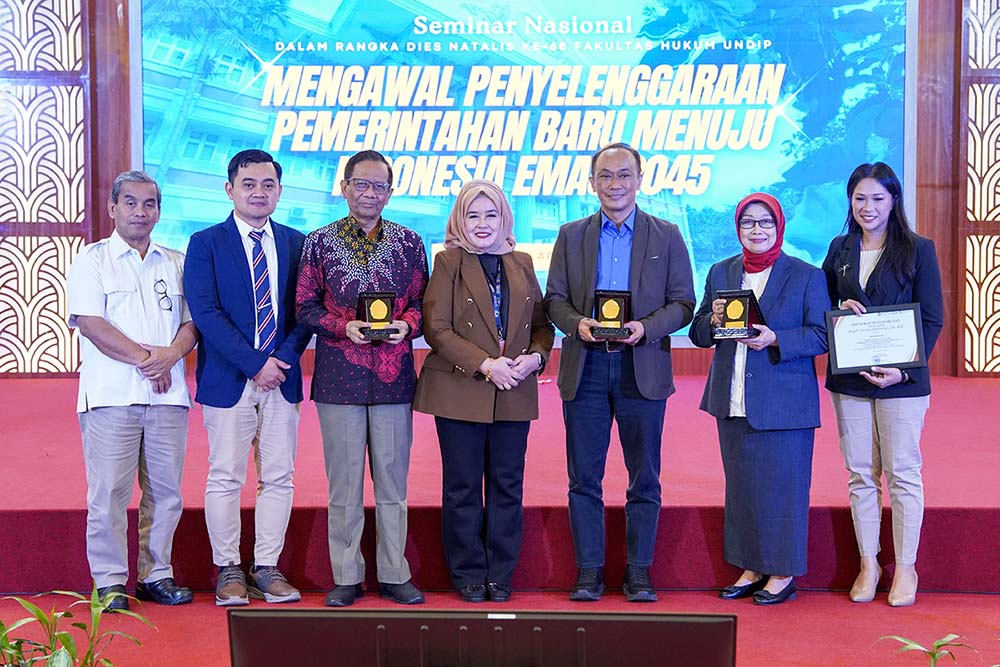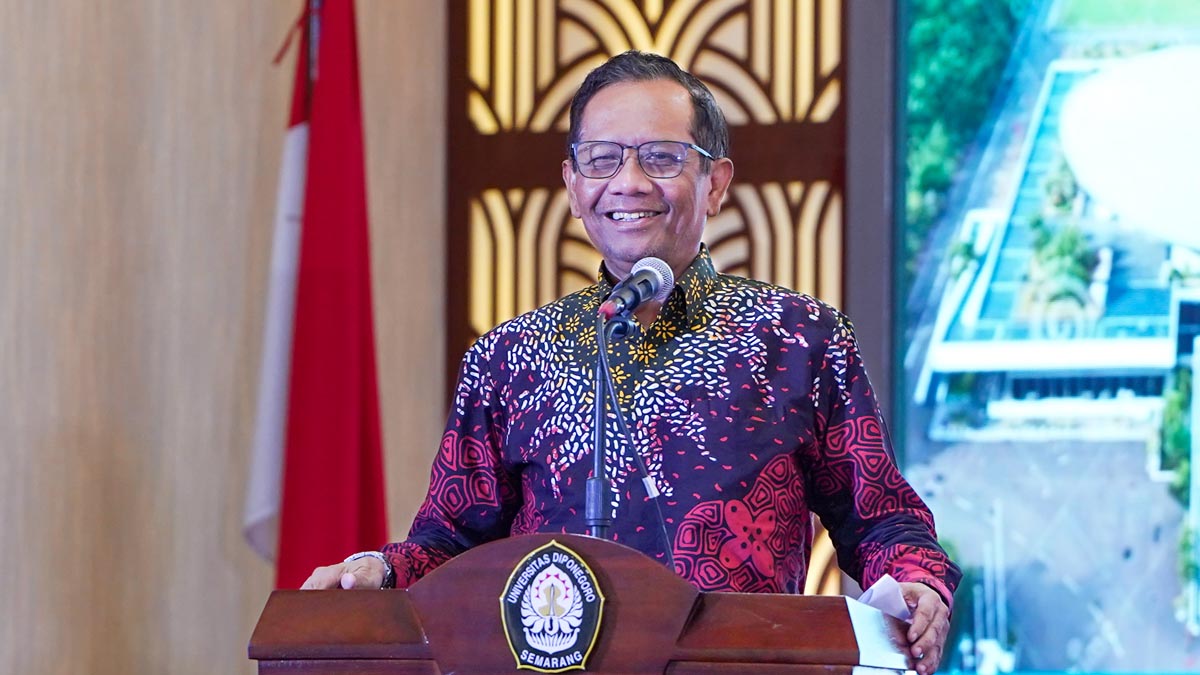UNDIP, Semarang (April 29, 2025) – In celebration of its 68th anniversary, the Faculty of Law at Universitas Diponegoro (UNDIP) held a national seminar titled “Safeguarding the Administration of the New Government Towards Golden Indonesia 2045.” The event featured notable national figures, including Prof. Dr. Mohammad Mahfud MD, Coordinating Minister for Political, Legal, and Security Affairs for the 2019–2024 period.
Held on Tuesday, April 29, 2025, at the Prof. Purwahid Patrik Building, the seminar was officially opened by the Dean of the Faculty of Law, Prof. Dr. Retno Saraswati, S.H., M.Hum. In her opening remarks, Prof. Retno emphasized that the transition to a new government presents a critical opportunity to strengthen the moral responsibility of society—particularly the academic community—in ensuring that governance aligns with the aspirations of the Indonesian people.
“The theme of this seminar is highly relevant to the current dynamics of our nation. As citizens, especially those in academia, we carry a moral obligation to help guide the new government to fulfill public expectations,” Prof. Retno said.
She underscored the importance of developing a legal and constitutional system that is responsive to cultural shifts and globalization in order to achieve Indonesia’s national goals. “We hope to contribute to improving governance and the constitutional framework in Indonesia. We are witnessing extraordinary dynamics,” she concluded.
Moderated by Anggita Doramia Lumbanraja, S.H., M.H., the seminar featured three speakers:
- Prof. Dr. Mohammad Mahfud MD, S.H., S.U., M.I.P., former Coordinating Minister for Political, Legal, and Security Affairs
- Prof. Dr. Lita Tyesta Addy Listya Wardhani, S.H., M.Hum., Professor of Law at UNDIP
- Prof. Dr. Zudan Arif Fakrulloh, S.H., M.Hum., Head of Indonesia’s National Civil Service Agency (Badan Kepegawaian Negara / BKN)
In his keynote address, Prof. Dr. Mohammad Mahfud, MD. delivered a presentation titled “Policy Politics and Evidence-Based Policymaking.” He stressed that quality policy outcomes must be grounded in data and research rather than assumptions or speculation. Sound public policy, he argued, should emerge from objective, evidence-based processes supported by verifiable statistics and research.
However, he acknowledged that policymaking is often disrupted by political interests and trade-offs between actors, resulting in subpar policies. These dynamics can give rise to authoritarian approaches masked as legal reform—a phenomenon he described as “autocratic legalism.”
To address this, he called for collective awareness among political actors to recognize the flaws in the current system. Unfortunately, such appeals often sound cliché and are challenging to implement in daily politics. As a result, leadership quality becomes a crucial factor in ensuring that public policy is transparent, accountable, and aligned with public interest.
Prof. Lita Tyesta spoke on “Building Meaningful Public Participation in the Legislative Process as a Foundation for Golden Indonesia 2045.”
She argued that public participation in lawmaking is fundamental to a democratic rule-of-law state. The concept of “meaningful participation” involves active, substantial, deliberative, and transformative involvement—not just a symbolic gesture of democracy.
“Meaningful participation serves as a key instrument for achieving transparent governance, reinforcing the rule of law, and maintaining democratic stability and national leadership,” Prof. Lita said.
The final speaker, Prof. Dr. Zudan Arif Fakrulloh, addressed “Governance Practices Through Transparency, Accountability, and Efficiency.” He noted that the government continues to promote digitalization in local governance, emphasizing that data-driven policies responsive to local needs can deliver real-world impact and serve as models for national implementation.
As the head of BKN of the Republic of Indonesia, Prof. Zudan also introduced several reforms aimed at improving civil service career development, including streamlined HR services, digitalized civil service management and competency assessments, simplified academic title registration, and an integrated transfer system. These efforts are part of building a more adaptive, data-driven bureaucracy.











